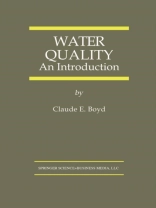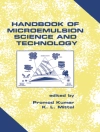Water quality is important to everyone, but professionals in many disciplines need an understanding of this subject. Although water quality is complex, its general aspects can be grasped readily and with little background – only introductory chemistry and biology and a little algebra are needed. Unfortunately, the teaching of water quality is not well organized. In most colleges and universities, water quality instruction is given in certain engineering curricula and in aquatic ecology or fisheries curricula. There also is brief attention to selected topics on water quality in numerous classes in other curricula. Water quality training in engineering is highly specialized and directed by necessity towards water supply and water treatment, while the focus in aquatic ecology and fisheries is on biological water quality and pollution. Few students venture into specialized classes outside of their curricula, and as a result, their formal training in water quality is greatly restricted. Self-education by reading texts and reference books on water quality is difficult. Authors of water quality books seem to be more interested in presenting a rigorous, detailed treatment than in focusing on simplicity and clarity. Chemical aspects of water quality often are presented at a level requiring fairly advanced mathematics and physical chemistry, and biological discussions may be quite advanced and theoretical. I have taught water quality to seniors and graduate students in agriculture, wildlife and fisheries, environmental sciences, economics, and similar disciplines for many years.
Claude E. Boyd
Water Quality [PDF ebook]
An Introduction
Water Quality [PDF ebook]
An Introduction
Buy this ebook and get 1 more FREE!
Language English ● Format PDF ● ISBN 9781461544852 ● Publisher Springer US ● Published 2012 ● Downloadable 3 times ● Currency EUR ● ID 4730250 ● Copy protection Adobe DRM
Requires a DRM capable ebook reader












